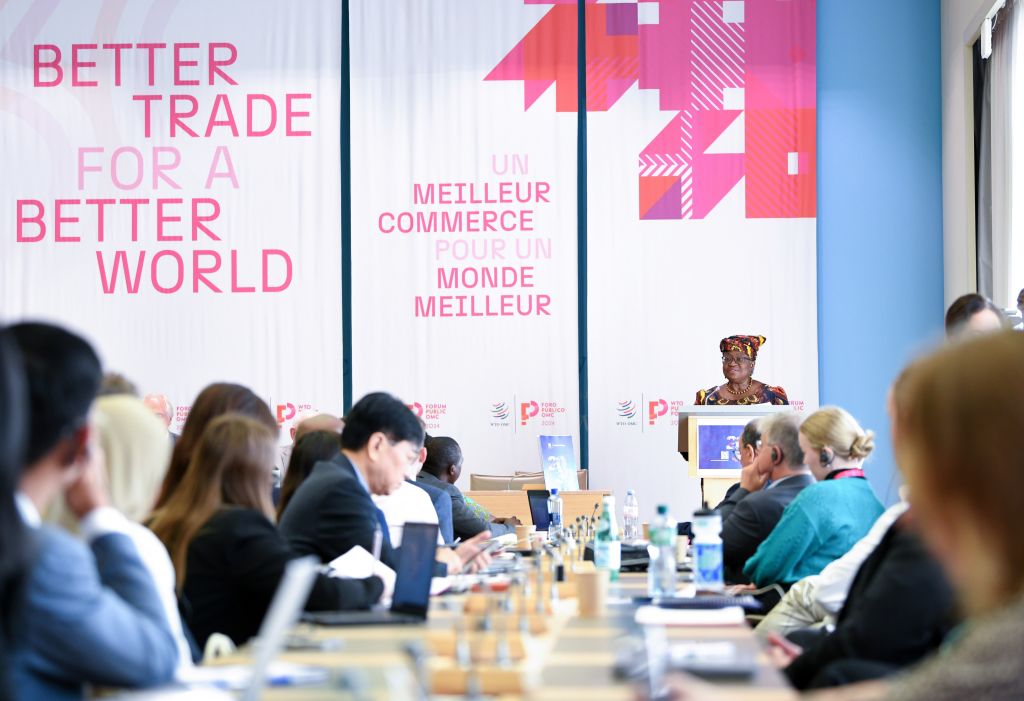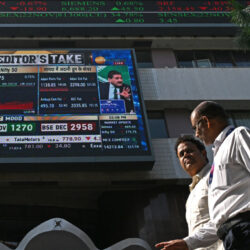
Two worldwide shifts are dismantling globalization as we know it. Globalization was a process that enhanced interconnectedness and interdependencies between nations through ease of trade, investments, travel, and social engagement. Many countries, especially China, benefitted from this global economy. But rising geopolitical tensions between the United States and its allies and China, along with the experience of COVID-19, is making many nations restructure their supply chains through friendshoring and nearshoring. This restructuring has created a new global phenomenon that is variously described as de-globalization and re-globalization. While the former emphasizes disengagement, the latter emphasizes the re-engagement elements of the restructuring that is happening globally.
De-globalization is happening through the introduction of trade barriers and quotas, including tariffs, to reduce international trade or investment in a certain region; the reduction of international cooperation and global initiatives; and the dismantling of the supply chain to reduce dependence on other countries with a focus on domestic production and geopolitical realignments. Re-globalization is an expression of enhanced unilateral decision making. It signifies the resurgence of international trade networking and investments, but with greater attention to geopolitical alignment, security risks and threats.
Benefits and Challenges of De- and Re-Globalization
The realization of benefits from re-globalization depends on several factors: awareness of long-term strategic interests; the creation of a system at minimum risk of new geopolitical reorganization; measurability of resource capacity and availability; future projections for potential penetration on the global stage; and a strengthening of existing capacities.
If we focus on the restructuring of global supply chains and the flow of foreign direct investment, both claims that we are witnessing de-globalization and the alternate view that we are experiencing re-globalization will sound credible. In this context, de-globalization has increased resilience. However, businesses seek efficiency in operations and international exchange, not forced principles of self-sufficiency on nations and their needs; areas of technology, health, and energy exist only from interdependence, cooperation, and integration. Mutual investment initiates new markets and regions, joint ventures, and mergers, which are directly related to the liberalization of trade policies and global economic recovery. Initiating restrictions on investments, especially in technology, as exemplified by the United States’ and European Union’s efforts to contain Chinese influence, can trigger new strategic responses, emphasizing the development of domestic industries and preventing foreign influence through multinational corporations, political influence, and the like.
A key example of de-globalization is the decoupling of the U.S. and Chinese economies. If this is possible in the long term, a globalized world is expected, with more fragmented (localized) supply chains that avoid global dependence and the potential for risk from it. The reshaping of globalization cannot be entirely attributed to Europe’s strategic relationship with the United States in reducing Chinese influence. However, it may encourage new alliances and integrations, which in themselves will lead to a new architecture of globalization, investment, and supply chains. We can see this trend in strategies such as China plus one, which are adding safer alternatives to the supply chain while continuing to benefit from China’s manufacturing.
Net Assessment
The world remains in flux. Global powers are struggling to find new ways of reorganizing the global economy which until now was driven primarily by efficiency and profit motivation. But now geopolitical competition between China and the West and the ever-present threat of pandemics have also become important factors – hence the trends toward de-globalization and re-globalization.
WTO Director-General Ngozi Okonjo-Iweala speaks at the WTO Public Forum 2024 in Geneva, Switzerland, on Sept. 10, 2024. The forum highlighted the theme “Re-globalization: better trade for a better world.” (Photo by Lian Yi/Xinhua via Getty Images)





